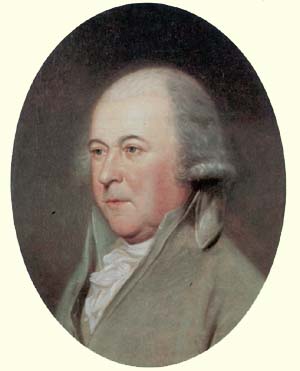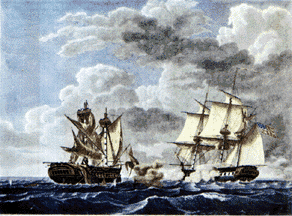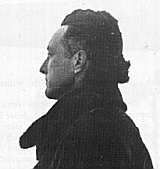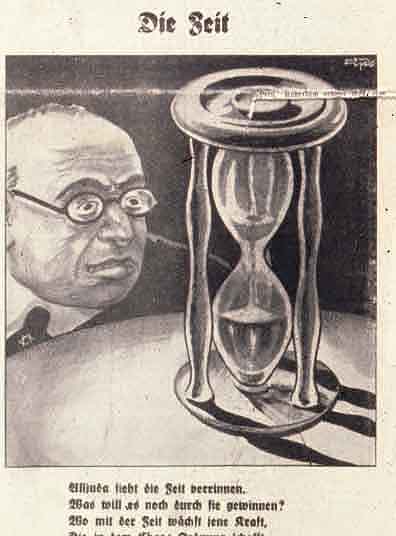NAVIGATION COLUMN
Home Page
Yahoo Groups:
History 1 Day 2
Nuremburg Data
Daily History Pages:
In Calendar Form
FAIR USE NOTICE: This site could contain copyrighted material the use of which has not always been specifically authorized by the copyright owner. We are making such material available in our efforts to advance understanding of historical, political, human rights, economic, democracy, scientific, environmental, and social justice issues, etc. We believe this constitutes a 'fair use' of any such copyrighted material as provided for in section 107 of the US Copyright Law. In accordance with Title 17 U.S.C. Section 107, the material on this site is distributed without profit to those who have expressed a prior interest in receiving the included information for research that could include educational purposes. If you wish to use copyrighted material from this site for purposes of your own that go beyond 'fair use', you could most likely need to obtain permission from the copyright owner.
|
October 25

1147 The armies of the Second Crusade (1147-49) are destroyed by the Saracens at Dorylaeum (in modern Turkey). The Crusaders will go on with fruitless campaigns against Damascus, Syria.

1400 Death: Geoffrey Chaucer, at his lodgings, a house in the gardens of Westminster Abbey, in London.

1671 Giovanni Cassini discovers Iapetus, a satellite of Saturn.
1760 Death: King George II. George III, Hanover, his grandson, becomes king.
 
1764 John Adams marries Abigail Smith. Their marriage will endure for 54 years.

1800 Birth: Thomas Babington Macaulay, in England, poet, historian (Ivry, Naseby).

1812 War of 1812: The US frigate United States captures the British vessel Macedonian.

1825 The Erie Canal, America's first man-made waterway, is opened, linking the Great Lakes and the Atlantic Ocean via the Hudson River.

1854 Crimean War: Over six hundred British cavalrymen are killed after Lord Cardigan leads the ill-fated Charge of the Light Brigade. (Battle of Balaklava). They attack a heavily fortified Russian position and are wiped out.

1877 Birth: Henry Norris Russell, astronomer (Hertzsprung-Russell diagram).

1881 Birth: Pablo Picasso, Spanish painter and creator of Cubism.

1888 Birth: Richard E. Byrd, in Virginia, admiral, US aviator and polar explorer; will make the first flight (1926) over the North Pole.

1892 Death: Caroline Harrison, President Benjamin Harrison's wife, at 60.
1900 Boer War: England annexes the Transvaal, the former Boer South African Republic.
1902 Birth: Henry Steele Commager, in Pittsburgh, Pennsylvania, American historian who will write the fifty-five volume Rise of the American Nation. (Atlas of the Civil War).
1911 Winston Churchill is appointed First Lord of the Admiralty in Britain.

1916 WW1: German pilot Rudolf von Eschwege officially shoots down his first enemy plane (actually, his second), a Nieuport 12 of the Royal Naval Air Service over Bulgaria. "...Young Eschwege, who was originally assigned a Fokker Eindecker as his mount, was told that he was responsible for protecting all German aircraft as well as intercepting any identified Allied aircraft along 37 miles of the Struma River and 62 miles of the Aegean coast. He was also supposed to protect the Bulgarian 10th Division from aerial attacks. Eschwege--called "Rudi" by his comrades and often in official FFA reports as well--started out in his new role with vigor. Shortly after he arrived, he intercepted a flight of Henri Farmans, based on the Greek island of Thasos, that had bombed the Xanthi railroad depot. He fired on one of the bombers, destroying its engine with the Fokker's synchronized machine gun. The biplane glided into the Aegean Sea, flipped over and sank. Troops at a Bulgarian observation post witnessed the action and reported seeing the Farman crash into the sea. By the time Eschwege entered his victory claim, however, the Bulgarian unit had been transferred and could not be located to confirm the victory, and Eschwege's claim was denied. Such are the fortunes of a fighter pilot..."
1917 Russian Revolution: The Military Revolution Committee of the Petrograd Soviet launches a successful insurrection. Lenin's influence is decisive, but the actual organizer is Trotsky. Lazar Kaganovich, himself of Jewish descent, later relates that the percentage of Jews in the party at this time is 52%, rather high he noted, when compared to the percentage of Jews (1.8%) in the total population. For this reason, anti-Semites will label the resultant Communist regime a product of 'Jewish Bolshevism,' even after most Jews have been purged. (Wolf)
1918 WW1: Allenby's troops takes Aleppo.

1923 The Teapot Dome scandal comes to public attention as Senator Thomas J. Walsh of Montana, subcommittee chairman, reveals the findings of the past 18 months of investigation. His case results in the conviction of Harry F. Sinclair of Mammoth Oil, and later Secretary of the Interior Albert B. Fall, the first cabinet member in American history to go to jail. The scandal, named for the Teapot Dome oil reserves in Wyoming, involves Fall secretly leasing naval oil reserve lands to private companies.

1933 Edouard Daladier's cabinet falls from power in France.
1936 The Rome-Berlin Axis is established. Cooperation between Germany and Italy in Spain has helped cement a vague understanding, which is now formally concluded. Note: If this days post goes out late, it is the fault of this link. I just couldn't stop reading.
1939 Holocaust: Aktion Tannenberg. officially comes to an end. SS special task forces (Einsatzgruppen) have murdered hundreds of Jews and members of the Polish intelligentsia, burned down dozens of synagogues, and waged an all-out campaign of terror against non-German, Polish civilians. (See Sep 3)
1940 WW2: German troops capture Kharkov and launch a new drive toward Moscow.

1941 Holocaust: Himmler and Heydrich meet with Hitler at his headquarters. In the course of the meeting, Hitler reminds them of his prewar prophecy that, unless war was avoided, the Jews would disappear from Europe. "This criminal race," Hitler tells them, "has the two million dead of the (First) World War on their conscience, and now hundreds of thousands more. Let no one say to me: we cannot send them into the mire. Who concerns themselves about our men? It is good if preceding us is terror that we are exterminating the Jews. The attempt to found a Jewish state will fail." (Monologue im Fuehrerhauptquartier; Architect)

1941 Holocaust: Despite the overwhelming odds against them, Jews at Tatarsk and Starodub, between Kiev and Moscow, rise up in revolt. German regular army units are brought in to crush their resistance. (Atlas)
1941 Holocaust: Dr. Wetzel, a "race-expert" in the Ministry of the Occupied Eastern Territories, writes in a draft of a letter to Himmler marked 'Secret': "To the Reich Commissar for the East Re: Your report of October 4, 1941 in respect to the Solution of the Jewish Question. With reference to my letter of October 18, 1941, this is to inform you that Oberdienstleiter Brack of the Führer Chancellery has agreed to collaborate in the production of the required shelters and gassing devices. At this time, the envisaged devices are not available in sufficient quantity; they will first have to be manufactured. Since in Brack's opinion, the manufacture of the devices in the Reich will cause much greater difficulties than doing it on the spot, Brack considers it most expedient to send his people to Riga, especially his chemist Dr. Kallmeyer, who will effect all further steps there. Oberdienstleiter Brack points out that the procedure in question is not without danger, so that special protective measures are necessary. In these circumstances, I request that you address yourself to Oberdienstleiter Brack in the Führer Chancellery through your Higher SS and Police Leader and request the dispatch of the chemist Kallmeyer and other assistants. I should inform you that Sturmbannführer Eichmann, the expert for the Jewish Question in the RSHA is entirely in agreement with this process. According to information from Sturmbannführer Eichmann, camps for Jews are to be set up in Riga and Minsk, to which Jews from the Old Reich territory may also come. At this time, Jews are being evacuated out of the Old Reich to Litzmannstadt (Lodz), and also other camps, to then later be used for labor in the east insofar as they are capable of work. As things now are, there are no objections if the Jews who are not capable of work, are eliminated with the Brackian remedy. In this way, events such as those that, according to a report in front of me, took place on the occasion of the shootings of the Jews in Vilna, and which, considering that the shootings were carried out in public, can hardly be excused, will no longer be possible. On the other hand, those capable of work will be transported for labor in the east. It goes without saying that the male and female Jews capable of work will be kept apart. I request a report on your further measures." (Science)
1941 Holocaust: German mass executions of prisoners in France prompt Roosevelt and Churchill to make an unusual joint public condemnation of German atrocities, and within three months, nine European governments-in-exile in London establish the Inter-Allied Conference on the Punishment of War Crimes. (Beast)

1941 Barbarossa: Operation TYPHOON. The Wehrmarcht's final drive on Moscow begins. The attack reaches to within 20 miles of Moscow before it is halted by stiff resistance and bitter cold. (Clark II)
1942 WW2: Rommel returns to North Africa from sick leave in Germany and immediately counterattacks.
1942 Holocaust: In Oslo, Norway, 209 Jewish men and boys over the age of 16 are deported to Auschwitz. (Atlas)

1943 Church and Reich: Jesuit priest Alfred Delp (above), a member of the German resistance, tells a conference of priests at Munich that the silence of the Church on what is being done to the Poles and Jews and on the horrors committed in the concentration camps will threaten the acceptance of the Church by the new Germany that will arise after the downfall of the Nazi regime. (DA Passau; Lewy)
1946 Nuremberg War Crimes Trials: The United States Military Government for Germany establishes Military Tribunal I, which will try twenty-three Nazi physicians in the first of eleven subsequent trials in Nuremberg. (Maser II)
1950 Korea: Chinese Communist Forces launch their first-phase offensive across the Yalu River into North Korea.
1951 In a general election, England's Labour Party loses to the Conservatives. Winston Churchill becomes Prime Minister for the second time, and Anthony Eden becomes foreign secretary. Among Tory hopefuls who fail to be returned to form Churchill's majority is 26-year-old Margaret Roberts, later Mrs Thatcher.
1951 Korea: Peace talks aimed at ending the Korean War resume in Panmunjom.

1954 President Eisenhower conducts the first televised Cabinet meeting. Fortunately, the bizarre experiment sets no precedent.
1958 The last US troops leave Beirut.
1960 Martin Luther King Jr is sentenced to four months in prison for a sit-in.
1961 Death: Peter Jensen, co-inventer (loud speaker), at 75.
1962 The 110th member of the UN is admitted; Uganda.

1962 Cuban Missile Crisis: US ambassador to the United Nations Adlai E. Stevenson presents photographic evidence of Soviet missile bases in Cuba to the UN Security Council. He demands that the USSR and their Ambassador Zorin answer regarding Cuban missile bases saying, 'I am prepared to wait for my answer until hell freezes over'.
1968 Chicago recognizes Jean Baptiste Pointe de Sable as its first settler.

1971 The UN General Assembly admits mainland China and expel the Nationalist Chinese government of Taiwan.

1975 The USSR's Venera 10 makes a dayside Venus landing.
1976 Governor Wallace grants a full pardon to Clarence Norris, the last known survivor of nine Scottsboro Boys who were convicted in 1931 of a rape they did not commit.
1978 The Israeli Cabinet approves "in principle", a draft compromise peace.

1983 Two days after a suicide bomber kills 241 US marines at their barracks in Beirut, Lebanon, 1,800 US Marines, backed by a token 300 Caribbean troops, a military force from English-speaking Caribbean nations, lead an assault on the tiny island republic of Grenada. US President Ronald Reagan, citing a recent coup within Grenada's Communist government, calls the invasion to restore order and provide protection for US citizens on the island against 'a brutal group of leftist thugs'. The initial assault consists of over 1,000 troops who are met by moderate resistance from the Grenadine army and a number of armed Cuban personnel on the island. Skirmishes continue for several days, but as the invasion force grows to more than 7,000, the defenders either surrender or flee into the mountains. US forces soon turn up evidence of a strong Cuban and Soviet presence - large stores of arms and documents suggesting close links to Cuba. By 2 November, the island is under American control, shortly thereafter a pro-US government is established, and by mid-December all US troops have returned home. 19 Americans die in the fighting.
1986 The International Red Cross ousts South African delegates from a Geneva meeting because of Pretoria's policy of apartheid. It is the first such ejection in the organization's 123 years.

2001 The US Senate, by a 90-1 vote, approves a final package of anti-terror reforms designed to help law enforcement monitor, observe and detain suspected terrorists. The bill is sent to the president who is expected to quickly sign it.

2001 USA Today headline reads: "Rumsfeld: bin Laden may get away." Defense Secretary Rumsfeld later clarifies statement and says finding bin Laden "is like finding a needle in a haystack."
2001 Opposition Afghan leaders indicate frustration that the 19-day bombing campaign has failed to weaken Taliban
troops.
2001 Under extreme pressure from the US and other countries, Israel agrees to begin withdrawal from occupied Palestinian territory.

2001 US Vice President Dick Cheney declares that homeland security is not temporary, and "will become permanent in American life."
2002

2003

2004

2004

2004

^ Top of Page ^
Click Here to email the Webmaster of this site.
Web Page Design by Nathan
This page was last updated on October 20, 2005
|
